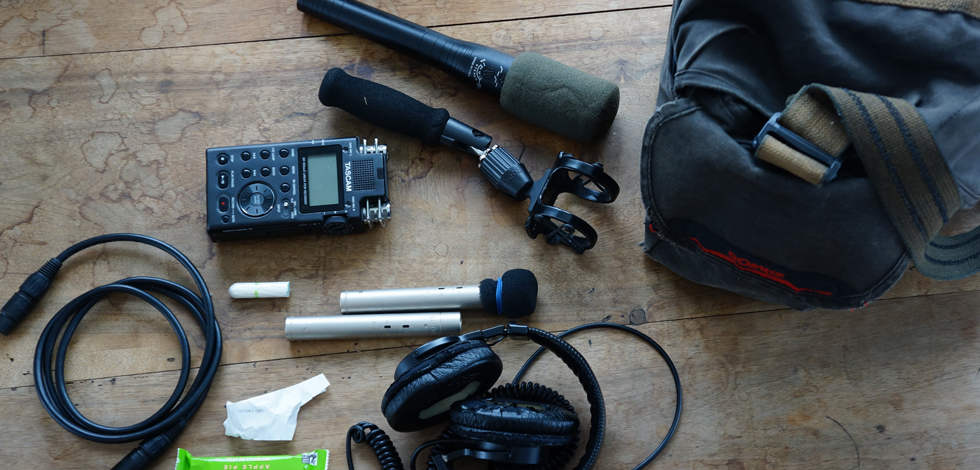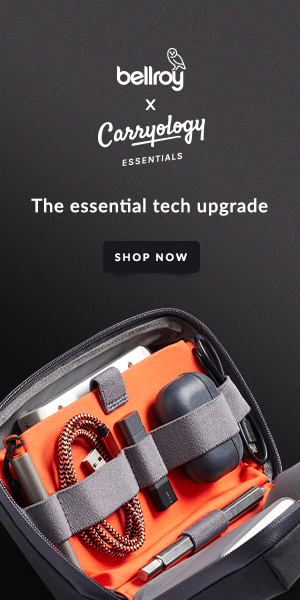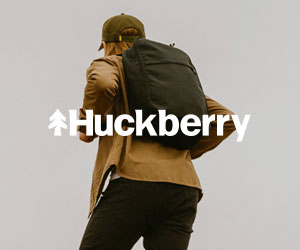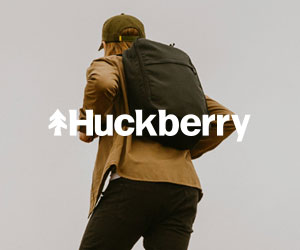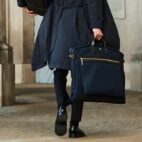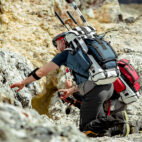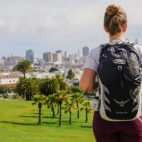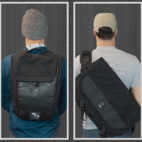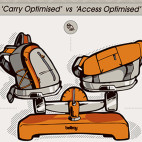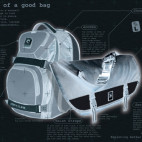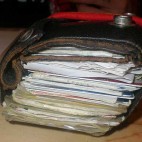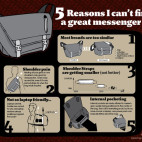Guest #MyCarryID :: Podcaster
Humorous. Thought-provoking. Sad. Raw. Erica Heilman shares real stories from everyday people in her podcast Rumble Strip. In our guest #MyCarryID we chat with her about her podcast journey, her curiosity and passion for storytelling, and the tools she carries into interviews…
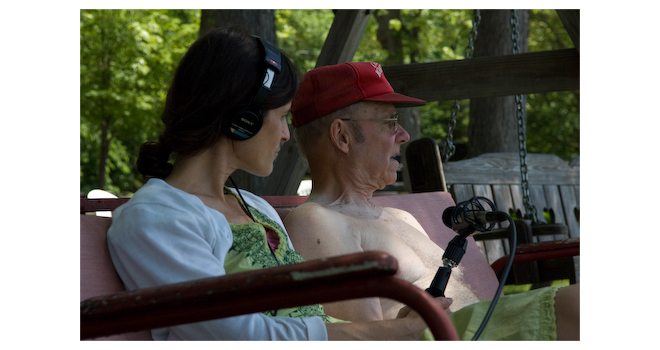
Let’s kick right off with your podcast (which I love!) Rumble Strip (formerly Rumble Strip Vermont) – what’s the essence of it for those who aren’t yet evangelists? What makes it special?
Well, it all started with Vermont. I have a very deep kind of love/hate relationship with this place. I was born here and raised here. I left here for a long time and came back. And I was not hearing this place on the radio.
And so that was one of the reasons I started making this show, because I wanted to hear stories that sounded like where I live. You see, Vermont is a very pastoral, beautiful place that relies on tourism. I mean, this is a very covered and bridge-ified place in the media. But I wanted to show some of the darker colors that make up this place.
When you ask “What is it?”, I would say that it’s about trying really hard to kind of climb into the front seat of somebody else’s life, and also trying to get listeners to go on that trip with me. And I think very often you find that if you can tease apart someone’s kind of…the cause and effect that becomes a life, you begin to realize that you understand them, or are more like them, perhaps, than you would have expected. So that, to me, is the magic of having a really intimate conversation with somebody – you figure out their life is really about: this happened, then this happened, then this happened, and here we are. And to me, I think that’s the closest thing I have to religion; there’s something deeply comforting to me about that.
“And I think very often you find that if you can tease apart someone’s kind of…the cause and effect that becomes a life, you begin to realize that you understand them, or are more like them, perhaps, than you would have expected.”
What led you here to podcasting? What was the journey?
I used to work in documentary television in New York years ago, when I was in my youth, in my 20s. I loved working in television; it was fun. New York was exhausting, funnily. I’m from here, so I came back here. It also took too much money to make television. That may have changed with digital technology, but at the time I was working in TV it was expensive. It required a lot of people. I wasn’t so attached to picture and video, so I taught myself how to produce audio and I started doing that.
Then I made my way back here to Vermont and continued on with audio. The absolutely beautiful renaissance that is podcasting has to do with the fact that there are no longer any gatekeepers to being heard. So public radio is the style of audio that I would say loosely describes what I make. But until, I’m not sure, ten years ago I guess, having your work heard depended entirely on program directors in public radio affiliates around the country. They were the gatekeepers of what was shared. That’s no longer the case.
“The absolutely beautiful renaissance that is podcasting has to do with the fact that there are no longer any gatekeepers to being heard.”
And, I gravitated toward this incredible, immense experimental energy that was taking form in the world of podcasting. And audio production is experiencing just an incredible renaissance right now. I’m amazed, interestingly, that even young people, who you would think would be attracted to fast cuts and fast edits, are really craving long-form audio, which I think is really hopeful and interesting.
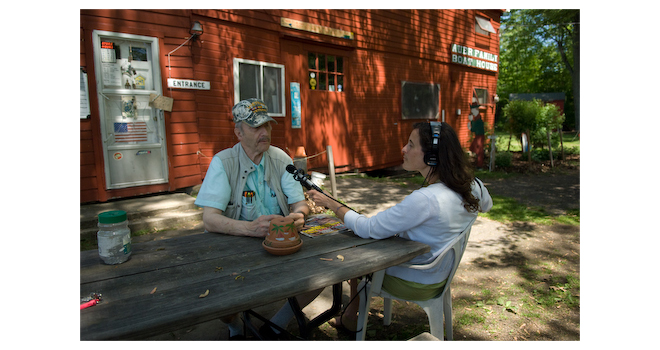
So you started in TV, you moved into audio because you didn’t want to have the gatekeepers…was there always a passion for storytelling or people that led you to podcasting?
Yeah, and probably like you. I can hear it in your voice that there is some weird gene; maybe it is a genetic marking or something. There is some weird proclivity, weird propensity for knocking on that door at the end of the road and finding out what is going on in that house. You want to know, how did you get here and why did you get here?
The impulse has to do with curiosity about other people, about the human condition. I think that has always been there. And so when first I found television, a light went on and I thought, “Oh, there’s something here.” If I’m working on a documentary about deep space, oh my God, I get to pick up a phone and call an astrophysicist at University of Notre Dame or at some university and talk about what he does. And that was just the keys to the kingdom.
“There is some weird proclivity, weird propensity for knocking on that door at the end of the road and finding out what is going on in that house. You want to know, how did you get here and why did you get here?”
So the impulse has to do with asking questions. Audio is a bucket that I could do that inside of. Plus, on the other side of that is editing which is like sculpture, I guess. It’s painful and horrible, but I think it’s where the thing gets made. I’m also really attracted to that.
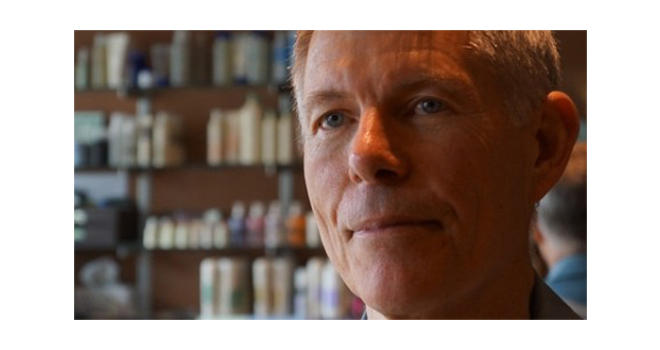
An American Life – a story about war and hairdressing
.
Is there an appeal to your having that license to go in through these closed doors and meet these people?
Yeah, totally. I mean, I also work as a private investigator, and I would say that that’s 99 percent of it. As a private investigator I’m allowed to go and knock on someone’s door in a house I would never otherwise be at and ask the most intimate questions.
This is true with radio too. You get to ask really intimate questions and you have this thing called a microphone between you, which does this magical thing of condensing all the energy in a room into this one pin prick, this one point. You get to visit another country with somebody. If you’re lucky, you find yourself somewhere else with somebody, in some third place that you didn’t know existed, where you’re talking about how you make decisions at 11am every day – “How do you do what you do?”
To me that’s incredibly exciting… I mean, that’s as good as sex.
Sometimes better [laughs].
I’m thinking a lot of times better. No, I would say sometimes [laughs].
Just to backtrack a little bit. So you went from TV into private-eyeing and podcasting at the same time? How did that work?
I went from TV, and then I moved back to Vermont and I worked as a private investigator. I was producing audio intermittently and working with a show called Hearing Voices, which was an NPR show at that time, but I wasn’t producing regularly. And then, a few years later, I started the podcast. I guess it was 2013 when I started podcasting.
“You get to ask really intimate questions and you have this thing called a microphone between you, which does this magical thing of condensing all the energy in a room into this one pin prick, this one point. You get to visit another country with somebody.”
For being a private eye and for being a podcaster, do you use some similar skills?
I think that there’s a lot of crossover. The skill sets are very similar, I think. Private investigation… It’s almost like, you have to have “the force”, man. You have to have the force with you. Nobody wants to see you when you’re a private investigator. There isn’t anybody who’s excited to see you. I mean, maybe if you’re working on behalf of criminals or an alleged criminal who is in jail and you go to the jail. Your client might be interested in seeing you. But pretty much everybody else is just not that excited that you’re there.
So you have to – when you’re walking up to that house – you have to believe that something is going to happen. There’s going to be an exchange between you and whoever opens the door that is going to lead to answers to your questions. And that’s a really fascinating proposition, that kind of exchange with another person. I find that radical honesty is usually the best tack.
And I prefer – when I’m interviewing somebody for my show – to interview them at their house or where they are comfortable, for a couple of reasons. One, because they are more comfortable there so I’m going to get a better interview; but also because then I get to experience their circumstance, which is just fun.
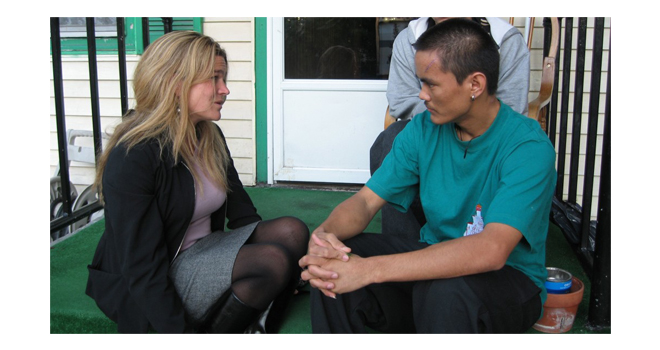
Vermont Private Eye – Susan Randall talks about 15 years as a private investigator in Vermont
.
I’m curious, how do you find your stories and locate your subjects? Do you have a ‘story radar’ that’s always on?
It’s fun, it makes life very interesting to imagine what I am thinking about and what I’m nervous about, what I’m scared about, what’s preoccupying me. How does that become a show? So that’s one vein that I tap. My own neurosis. My neurosis is one area of inquiry. And then there are just endless numbers of really fascinating people that people tell me about all the time. Like, you should interview him and her. So there’s that.
And then there’s just things that come up, issues that are of pressing concern either here or in my own head. I start, like a journalist would, to figure out who are the right people to tell this story?
“I prefer – when I’m interviewing somebody for my show – to interview them at their house or where they are comfortable, for a couple of reasons. One, because they are more comfortable there so I’m going to get a better interview; but also because then I get to experience their circumstance, which is just fun.”
And what’s the end goal, after you interviewed someone, and tapped into their story?
I don’t feel like I’ve done my job right if I leave somebody’s house or an interview and it hasn’t been mutually cathartic. That’s the goal, right? The goal is that you both feel like you’ve been on a trip together. I’m not trying to tap people out. I’m trying to shine a light on what’s really beautiful about them and I hope that that is pleasurable for people.
That’s beautiful and kinda awesome. That is my next question, really. Your stories really dig so deeply into people and their truths, like American Life, The Neighborhood or Last Chapter, for example. How do you bring so much out of people? These strangers most of the time. Do you have any tips for building a really great interview?
I think actually it’s easier with strangers than with someone you know. You know, it’s funny like when you’re on the subway or you have these really strange, uncut, off-the-hook experiences with strangers that are unguarded. They don’t cost as much because you don’t owe the person as much. It’s not complicated, and therefore it can be really intimate in a kind of off-the-hook way.
“I don’t feel like I’ve done my job right if I leave somebody’s house or an interview and it hasn’t been mutually cathartic. That’s the goal, right? The goal is that you both feel like you’ve been on a trip together.”
Preparation for an interview involves really thinking about what might I want to know from this person? Why am I going to talk with this person? And then maybe – depending on who that person is – maybe writing down a bunch of things that are both thematic and also actual questions that I think might yield interesting answers.
But by the time I get to somebody’s house, I don’t usually refer to questions that I’ve written down. I’ve tried to absorb them, maybe. Or absorb an idea of a trajectory for an interview. Like I want to start here and I imagine that it could go here, here or here, but I also try and focus on the dynamic that is developing between me and the person whom I’m interviewing – I think that an interview is about both of those things in equal parts.
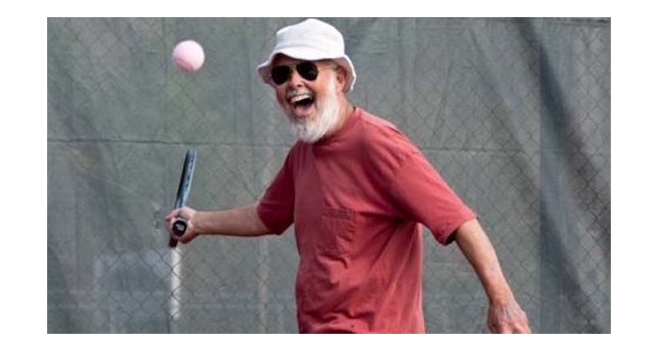
Last Chapter – When Bill was diagnosed with terminal cancer, he asked his best friend to help him die. This is their story
.
If you could whittle interviewing down to a few tips, for a novice looking to fine-tune their interview technique, what would you list?
Okay, sure. Firstly, be radically honest with your subjects. An interview ultimately is a conversation. I am completely open about sharing whatever it seems might be useful about myself to help somebody be comfortable, and only that much. I think that’s an important point. Don’t go on and on about yourself, that’s not why you’re there.
And secondly, meet people in their homes or where they’re comfortable.
“An interview ultimately is a conversation. I am completely open about sharing whatever it seems might be useful about myself to help somebody be comfortable, and only that much. I think that’s an important point.”
And say one tip for creating a podcast show?
Yes, start and finish, and start and finish. If you’re just starting out in making a podcast or making anything, I guess, is you start and finish, and start and finish, and start and finish. That will deliver you to some different place. It absolutely, inevitably, will deliver you. And it will absolutely, inevitably deliver you to a better place.
So all the nonsense you tell yourself about having the right mic before you get started or making sure that the show concept is perfect before you get started or all the bullshit that keeps you from starting and finishing is all bullshit. If you don’t start and finish and start and finish and start and finish, then you’re not making a show. And if you are starting and finishing and starting and finishing, you are making a show and you are getting better.
“So all the nonsense you tell yourself about having the right mic before you get started or making sure that the show concept is perfect before you get started or all the bullshit that keeps you from starting and finishing is all bullshit. If you don’t start and finish and start and finish and start and finish, then you’re not making a show.”
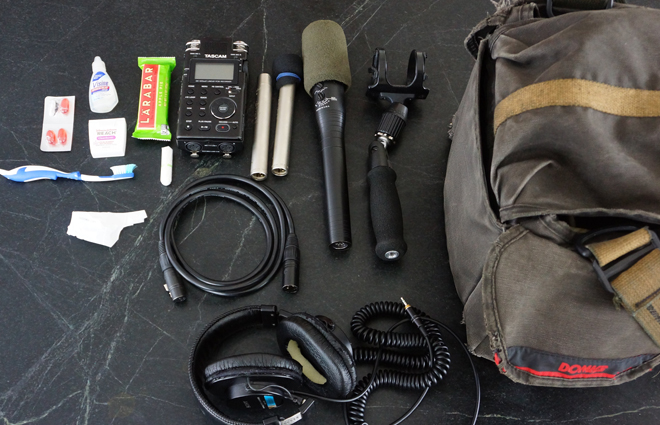
Let’s talk about your tools. When you go into an interview, what do you carry with you? What’s essential?
The only real essentials are a recorder, a microphone and some good headphones. Those are the things I carry but I carry a whole bunch of other shit that I don’t need but it makes me feel safe. So extra microphones, extra XLR cables in case there is any hum or buzz in the cables that I’ve got. Batteries. I carry a wireless mic in case we decide to go on a field trip somewhere and I want to use a wireless mic. Snacks, so that inevitably when somebody’s stomach starts to rumble I’ve got something to feed the interviewee.
“The only real essentials are a recorder, a microphone and some good headphones. Those are the things I carry but I carry a whole bunch of other shit that I don’t need but it makes me feel safe.”
- TAT mic
- TASCAM DR-100 recorder
- Shure VP88 condenser mic
- Sony dynamic stereo headphones.
- And a Domke bag, not even sure what model. It was given to me by my now ex-boyfriend and I carry it because it’s free.
.
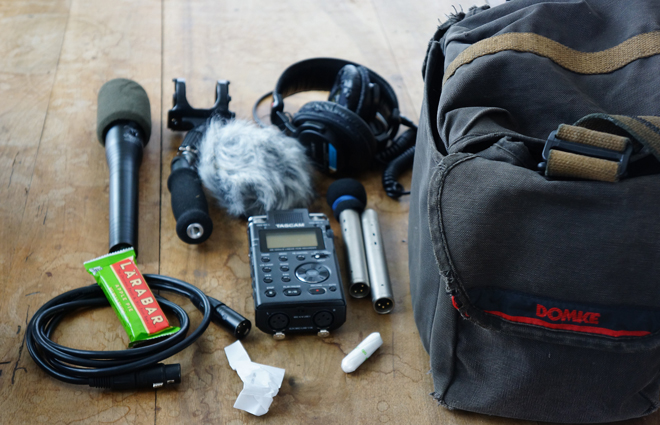
What else is in your bag when you go to an interview?
I usually carry mic stands, but they don’t go in my bag…
There’s an emergency tampon in there somewhere probably. And there’s some dead batteries at the bottom of the bag. I can’t tell the difference between the dead ones and the live ones, so if I just leave them all there, somehow it feels like that will sort the problem out. There’s probably some trash, probably some gum that I’ve wrapped up in paper that’s stuck down there. I have a little bit of gear bag shame. I don’t have great bag hygiene.
Haha! It’s kinda refreshing to see inside an uncurated bag, we should do more! So last few questions. Who else is doing great things in the world of podcasting?
Scott Carrier. I love, love, love what he makes. Check out his podcast: Home of the Brave.
I am part of a podcast collective called The Heard, a whole collective of podcasts that are really wonderful. It’s just a really great group of people who are making interesting work.
In particular, this one series called How to Be a Girl which is a mother in Seattle who is chronicling the young years of her transgender daughter and it’s just freaking fascinating. It’s so, so interesting and some of the best interviews with a kid that I’ve ever heard. It’s really great.
“I am part of a podcast collective called The Heard, a whole collective of podcasts that are really wonderful. It’s just a really great group of people who are making interesting work.”
What’s next for you?
Well I’m working on a show right now about Benedict Arnold’s leg. I don’t know if you know, Benedict Arnold is a sort of famous traitor from the American Revolution. Ultimately, I think, it’s an interview with a recovering U.S. history textbook writer, this guy called Steve Sheinkin. Ultimately I think the show is about people’s discomfort with moral ambiguity, and how to not teach that in schools.
So that is something I’m working on. I’m working on a show about a love affair between two brothers in New York City. And I’m hoping, actually, to make a show with Scott. So maybe look out for that too!
We will, for sure! Thanks so much for your time. It was an epic conversation.
_
If you’d like to hear more from Rumble Strip, you can follow along on Facebook or subscribe to the podcast for all the latest episodes – and we kinda hope you do, we think it’s awesome. 😉





 Carry Awards
Carry Awards Insights
Insights Liking
Liking Projects
Projects Interviews
Interviews
